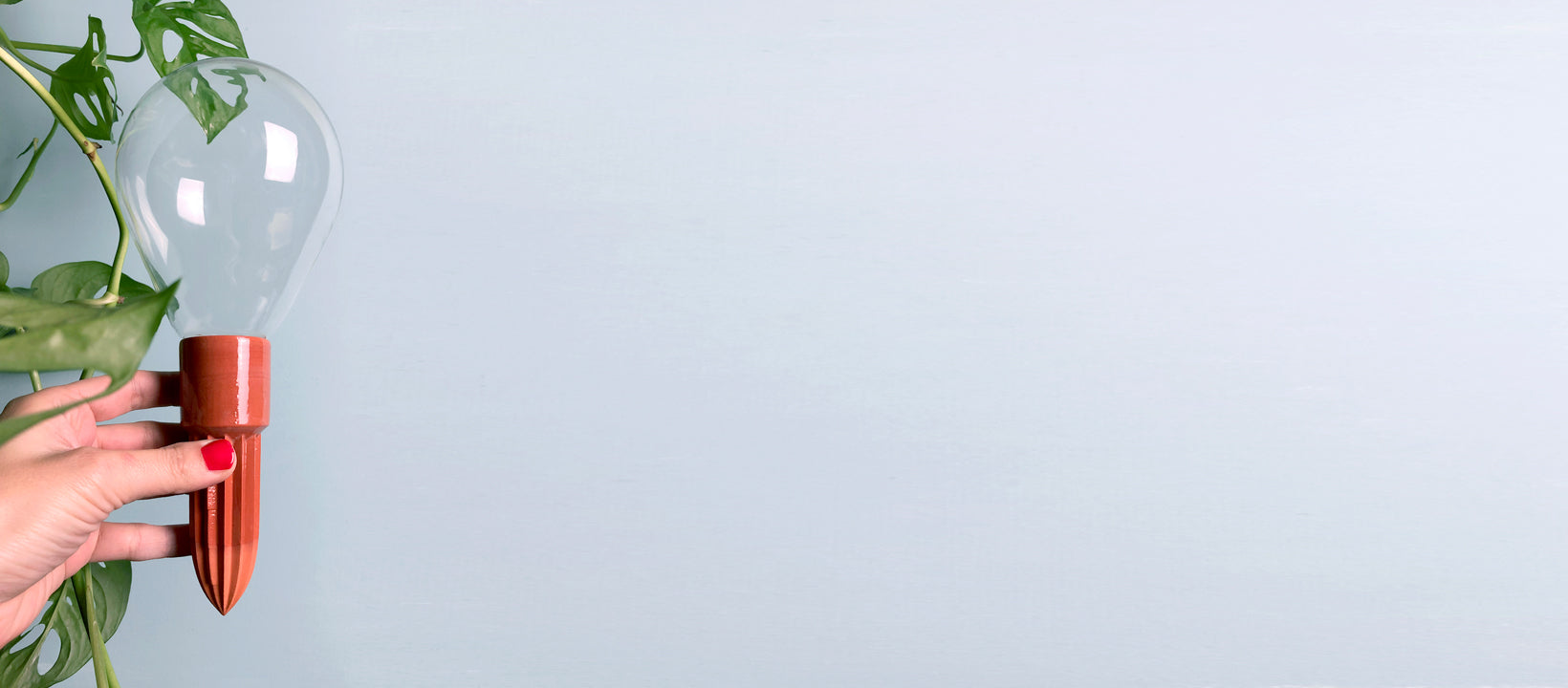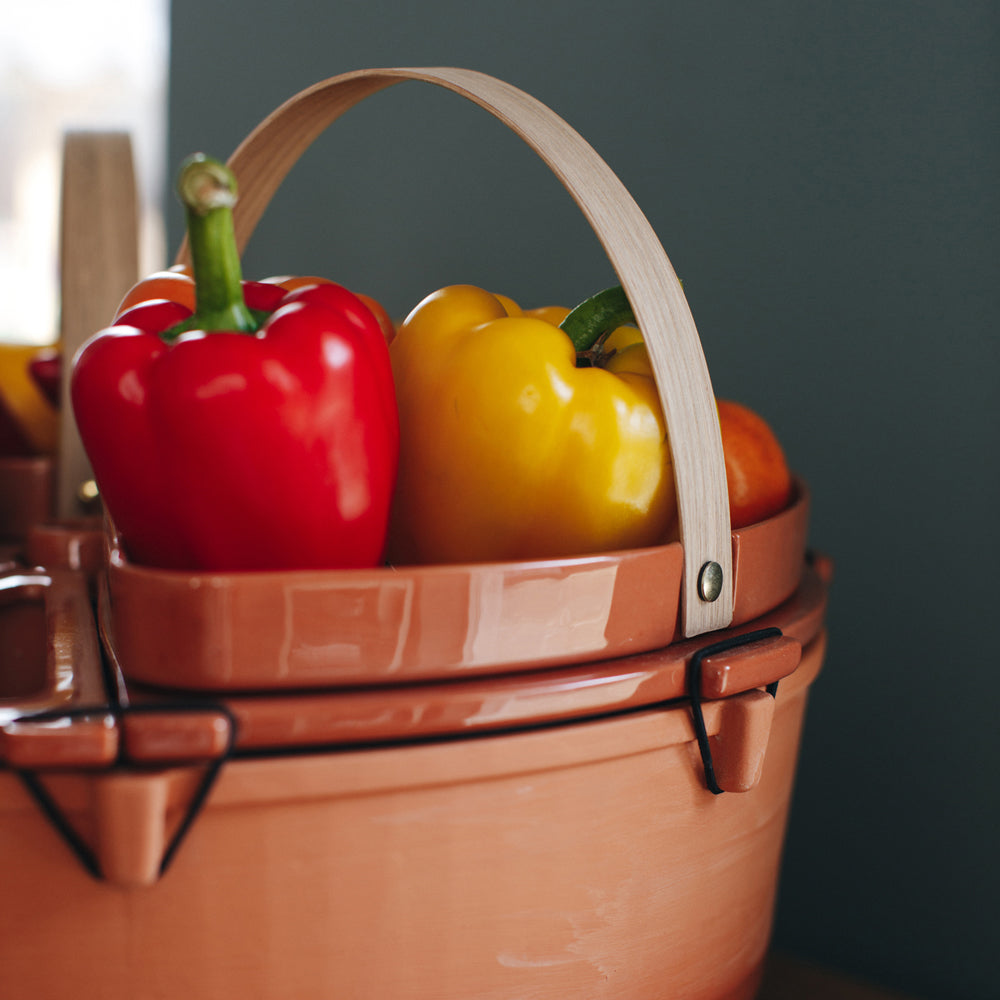
(bent) Beech wood
Patera Magna & Media handles
Beech wood is a hardwood that comes from the European beech tree (Fagus sylvatica) and is known for its durability and strength
To care for beech wood, it's important to keep it clean and well-maintained. Regular cleaning with a soft cloth and mild soap solution can help keep the wood looking its best.
Additionally, applying a food-safe oil or wood oil can help protect the wood from drying out and cracking.
Beech wood should be kept away from excessive moisture and heat to avoid damage.
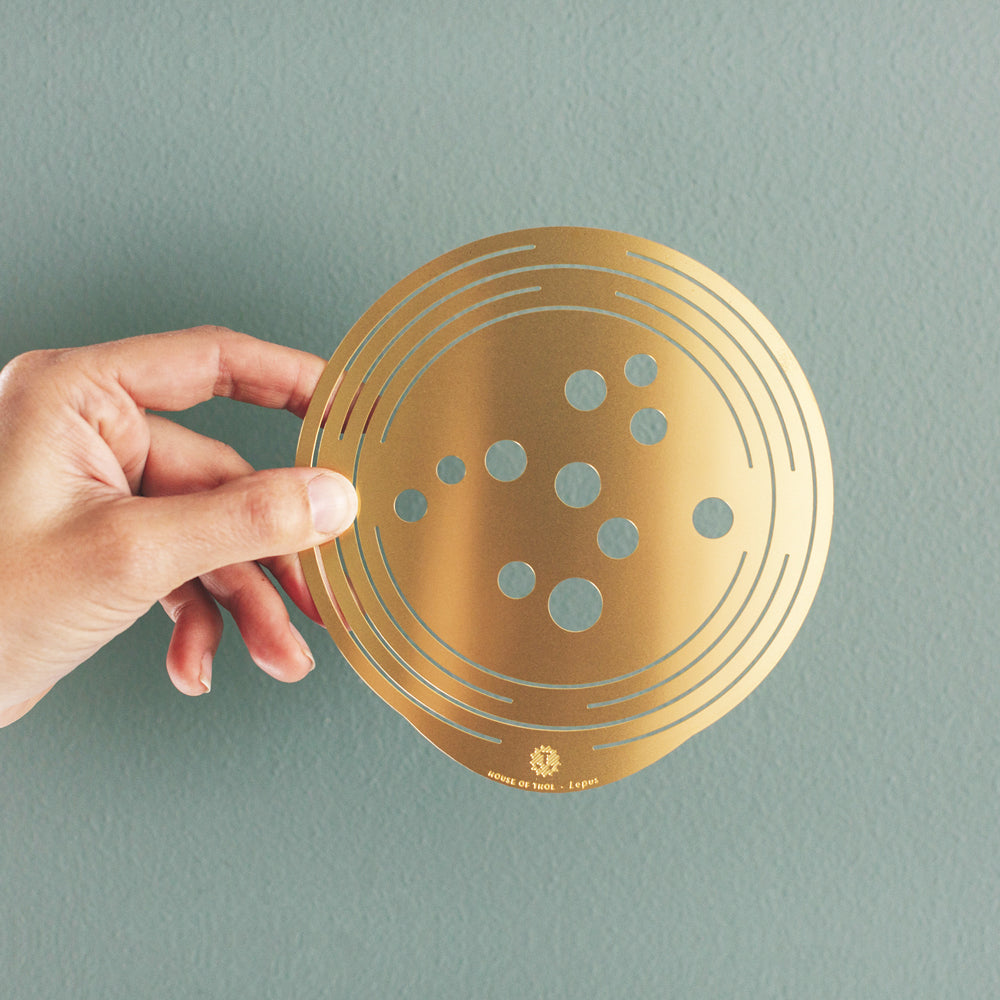
Brass
Flower Constellation, Helios propagation disk
Brass is a metal alloy made primarily of copper and zinc that is antibacterial, durable and corrosion resistant. Brass will develop a natural patina over time.
To care for brass, clean it regularly with a soft, non-abrasive cloth and mild soap, and avoid using harsh chemicals or abrasive tools that can scratch the surface.
Dry it thoroughly after cleaning, and remove stains with a mild brass cleaner or a mixture of vinegar and salt.
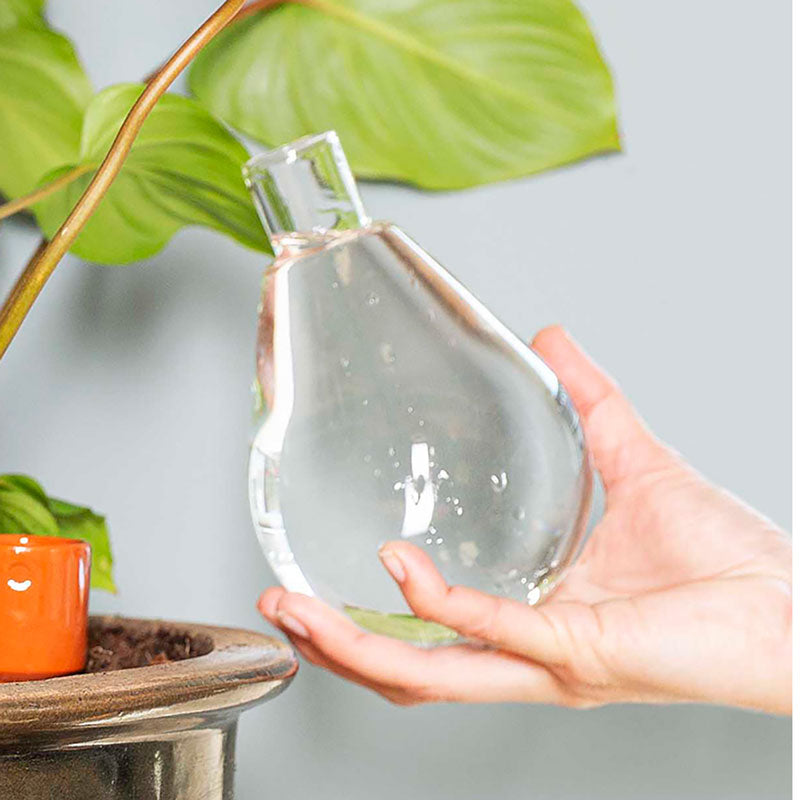
Glass
Patella Crescenda & Waterworks reservoir
Glass is a versatile and durable material that is resistant to heat and chemical damage but will break when dropped.
To clean the reservoir, use dish soap or a solution of water and vinegar and swirl inside the reservoir. Then, use a bottle brush to get to scrub the inside.
Avoid using abrasive cleaners, as these can scratch and damage the glass.
For tough stains or build-up, a solution of baking soda and water can be used. Be sure to rinse the glass with fresh water after cleaning.
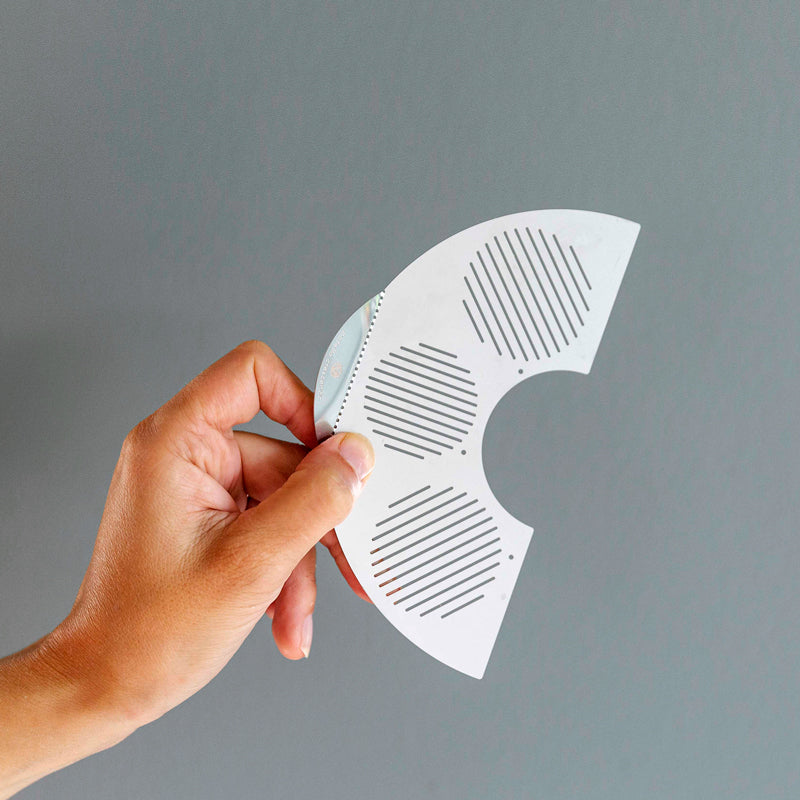
Stainless steel / INOX
Flower Constellations & Patella Crescenda growth disks
Stainless steel is a low-maintenance durable material that is resistant to rust, stains, and heat.
To care for stainless steel, clean it regularly with a soft, non-abrasive cloth and mild soap, and avoid using harsh chemicals or abrasive tools that can scratch the surface.
Dry it thoroughly after cleaning, and remove stains with vinegar or baking soda.
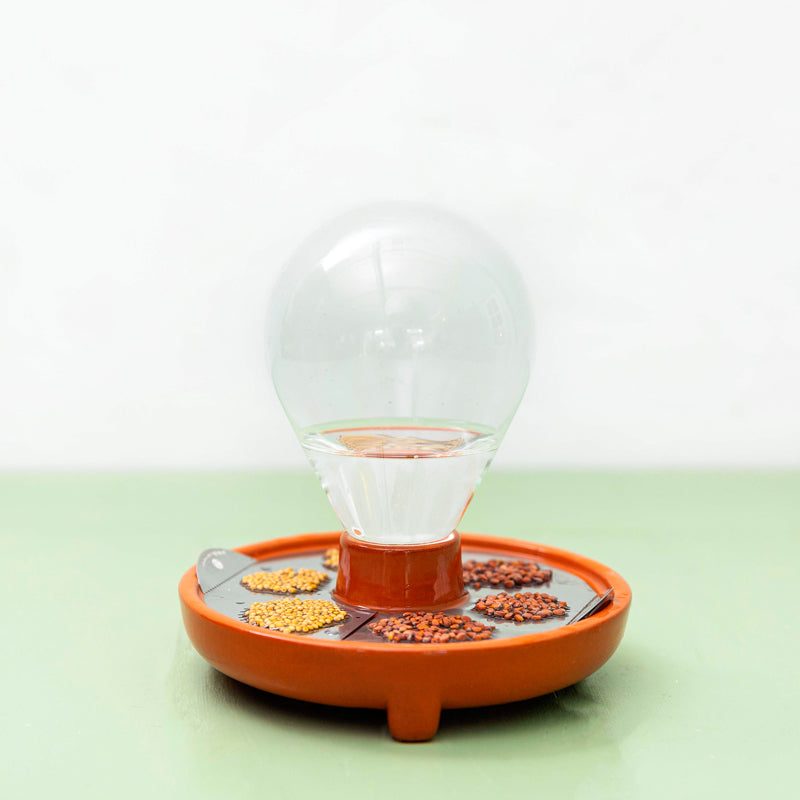
Terracotta: glazed
Patella dish, Patera Magna/media bowls
Glazed terracotta is a non-porous durable material that can withstand regular use and wear. It is resistant to scratches and chipping but will not respond well to being dropped.
To care for glazed terracotta, wipe it down regularly with a soft cloth or sponge and mild soap and water. Avoid using abrasive cleaners or scrubbers, as these can damage the glaze.
You can also apply a coat of wax or sealant to protect the glaze and enhance its shine.
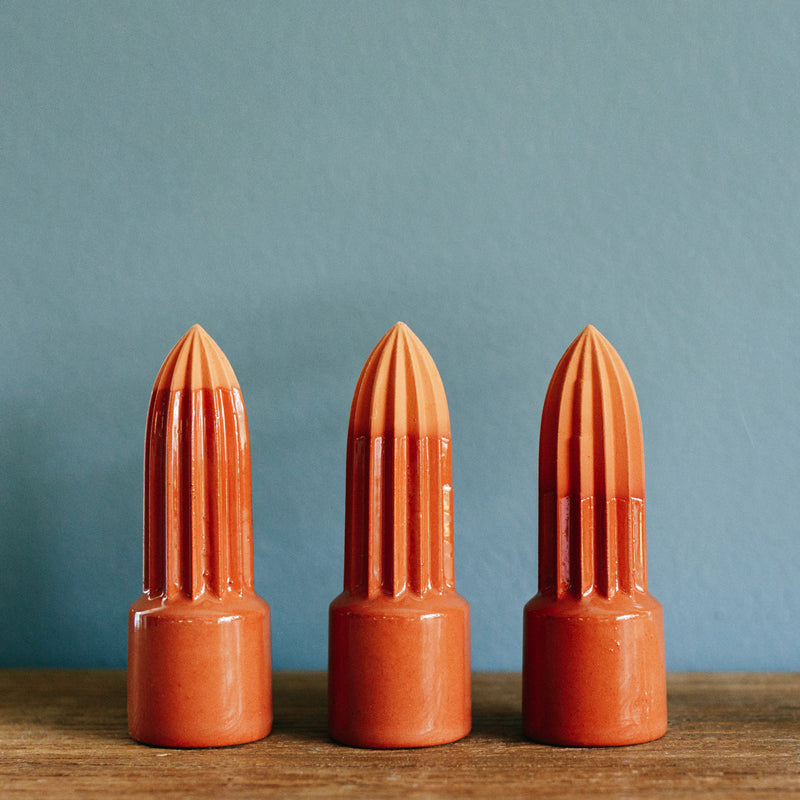
Terracotta: unglazed
Waterworks cones, Patera outer bowl
Unglazed terracotta is a porous durable material that can withstand regular use and wear. It is resistant to scratches and chipping but will not respond well to being dropped.
To clean unglazed terracotta, use a soft-bristled brush or sponge and mild soap and water. Avoid using abrasive cleaners or scrubbers and rinse thoroughly with clean water.
If your unglazed terracotta becomes stained, you can try using a mixture of baking soda and water to gently scrub the surface. Avoid using harsh chemicals or bleach, as these can damage the terracotta.
Bonus: How to get rid of lime from unglazed terracotta
-
Vinegar solution
Mix equal parts white vinegar and water in a spray bottle. Spray the solution onto the affected area and let it sit for a few minutes.
Scrub the area with a soft-bristled brush, then rinse the terracotta with clean water and dry it completely. -
Lemon juice and salt
Cut a lemon in half and dip the cut side into salt. Rub the lemon onto the lime-stained area, applying gentle pressure.
Let the mixture sit for a few minutes, then rinse the terracotta with clean water and dry it completely. -
Baking soda paste
Mix baking soda with a small amount of water to form a paste. Apply the paste onto the lime-stained area and let it sit for a few minutes. Scrub the area with a soft-bristled brush, then rinse with clean water and dry it completely.

